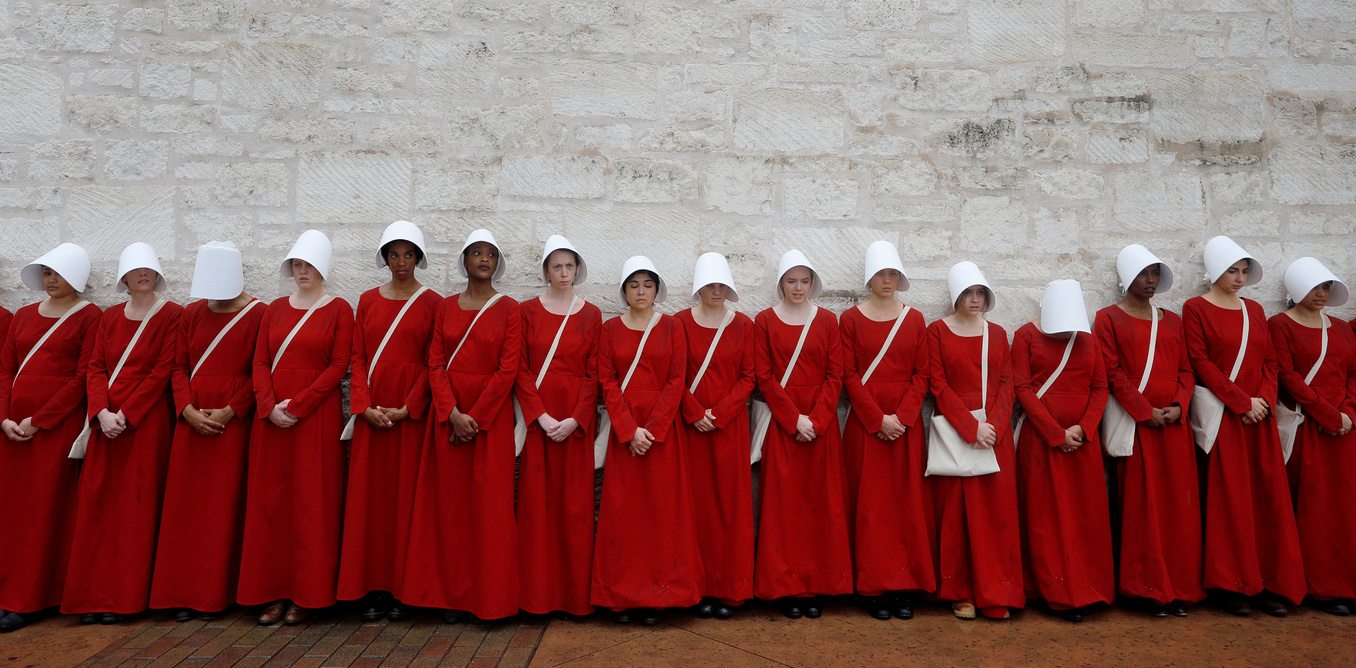Why ‘The Handmaid’s Tale’ is important today
Nolite te bastardes carborundorum; or, don’t let the bastards grind you down. This is the message that resonates from Margaret Atwood’s unsettling dystopian novel The Handmaid’s Tale, and in Hulu’s new screen version it is indeed a difficult one to forget.
Though set in an unknown, unspecified future, the events we see played out in the Christian fundamentalist dictatorship of Gilead are chillingly close to events we have either seen before or events that are entirely likely to happen in parallel versions of our own societies. Atwood herself said: “when I wrote it I was making sure I wasn’t putting anything into it that human beings had not already done somewhere at some time”. We now live in one of the most socio-politically unstable periods in recent history, and rights and freedoms for which we and our ancestors have fought hard are being constantly questioned, undermined and overturned as new restrictions are imposed by entities beyond our control. It is apt, then, that Miller’s adaptation shows us an America just a few steps away from the one we recognise today, as the discussion surrounding women’s control of their own bodies continues to pervade popular discourse.

Alexis Bledel as Ofglen. Credit: Hulu
The show’s protagonist, Offred (Elisabeth Moss), is a Handmaid, one of the few remaining fertile women in a society riddled with environmental (possibly nuclear) contamination introduced by the state – forbidden from having a job or owning property, Offred is ‘owned’ by political Commander Waterford and his wife, and forced to submit regularly to a bizarre and robotic sex ritual in order to bear children for the couple.
Undoubtedly, the visualisation of Atwood’s Gilead is difficult to witness. Under the guise of religious belief, we see women being forcibly torn from their babies; we see women being tortured and killed for their sexuality; we see women electrocuted under suspicion of aiding their fellows; and we see even the strongest and most independent of women being forced to debase themselves to their very lowest points in desperate attempts to save their own lives. The series is shot beautifully; cold, muted colours contribute to the suffocating atmosphere Gilead engenders. Even the glimmers of hope Offred tries to snatch at, like the shopping partner who offers her a way into the Resistance, are immediately quashed. We, like Offred, realise that the system is much greater and more powerful than she can hope to imagine.
It is in our hands to make sure that our society does not reach this place
And yet, these moments of transgression seem to epitomise the spirit of human resilience. Simple, quotidian things like playing Scrabble and singing Bob Marley songs send thrilling shockwaves down our spines as we realise just how far this dictatorship will go to control its own people, and how willing those people are to break out of their chains. Even in the absurdity of ritualised existence, we find something raw, visceral, human – the way the Handmaids gather round Janine and support her through childbirth, for instance, is a human instinct that transcends any kind of systematic or institutional restriction.
For us as students, the show is particularly important. In Gilead we see an alien timeless limbo, a government operating in a futuristic place that paradoxically embodies archaic and suppressive values of the past. As students and young people, we make up a huge demographic of our voting population, and it is in our hands to make sure that our society does not reach this place. With the Tories planning a coalition with a party whose anti-abortion and anti-LGBT+ values hark back to a time we thought we had put behind us, this exciting period of political turmoil in the UK is our chance to seize the reins and take back control from those who seek to suppress us. Remember: Nolite te bastardes carborundorum.

Comments